About PAZ
Collaboration with the Global South
Our vision
Indian partners of PAZ
Since the beginning of its operations in India, PAZ has collaborated with various Indian NGOs and non-profit organizations. We have experienced the most intensive and sustainable partnerships with the following organizations:
SSDC - SUNDARBAN SOCIAL DEVELOPMENT CENTRE
SSDC - Sundarban Social Development Centre: SSDC is a non-governmental non-profit organization founded in 1986 and operates in the Sundarbans region. Their areas of work include primary healthcare, education, and community development. They also focus on combating child labor and child trafficking. PAZ and SSDC have been partners since 2004. Key projects include an eye clinic, a children's hospital, and a clinic boat. Additionally, there are initiatives related to hygiene, nutrition, community building, and education. For instance, they have a "book bank" to support the education of the poorest and limit dropouts. SSDC also provides emergency relief due to the challenging weather conditions in the area. They promote and support self-help groups, savings groups, and youth groups. The child parliament and microfinance initiatives are noteworthy examples. SSDC is led by Gopal Pramanik (President) and Bhakta Prasad Purkait (General Secretary).
More information about SSDC can be found at: www.ssdcindia.org.in
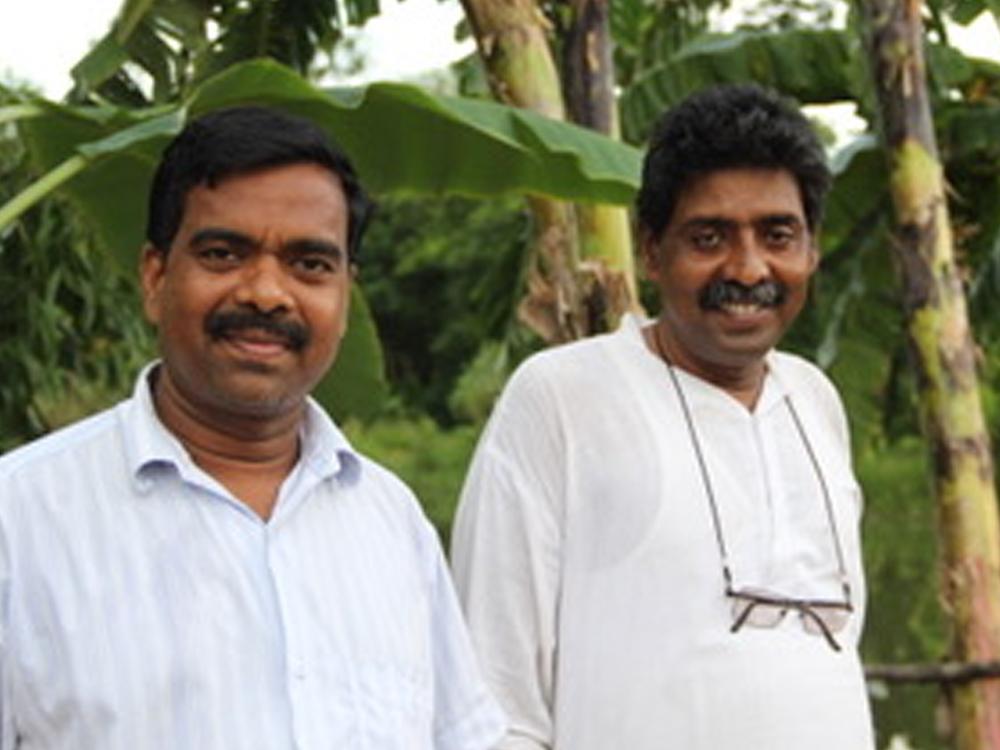
WBVHA - WEST BENGAL VOLUNTARY HEALTH ASSOCIATION
WBVHA - West Bengal Voluntary Health Association: WBVHA was registered as a social organization in India in 1974. Their goal is to create a society where everyone has access to affordable and quality healthcare, with a particular focus on vulnerable populations. WBVHA has closely collaborated with national and international stakeholders, government departments, and community platforms over the past decades. Their objective is to maintain and promote community health, guided by community participation and the Sustainable Development Goals. In 2024, WBVHA will celebrate its 50th anniversary. The organization has grown significantly and relies on dedicated and competent staff. WBVHA is led by D.P. Poddar (Executive Director).
More information about WBVHA can be found at: www.wbvha.co.in
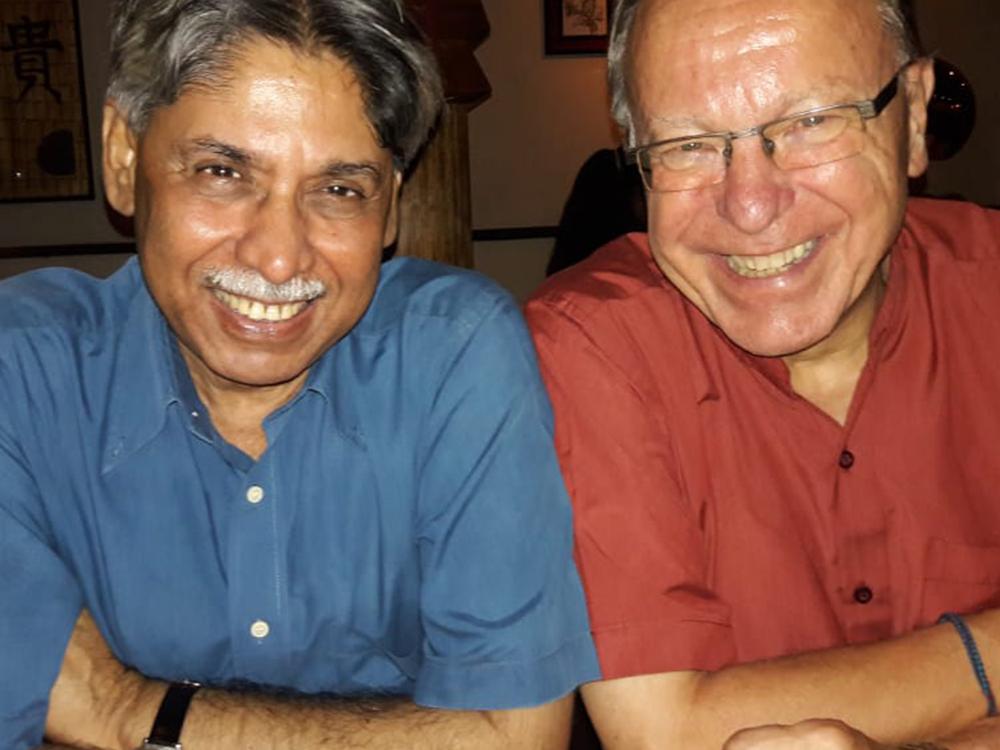
PAZ ... a story about solidarity and sustainability
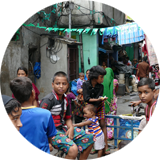
1994
A long-cherished dream becomes a reality
In 1989, a long-cherished dream comes true: the first trip to India. It is an indelible encounter with a different culture, different ways of life, different religions, and a visit to Sister Jeanne Devos.
In 1994, Bart Massart departs for India for the third time. It becomes a profound confrontation with poverty, inequality, exclusion, and inhumane and degrading conditions. People living in the slums of Kolkata, surviving on the largest garbage dump in Kolkata. Children working for 12 hours under precarious and unsanitary conditions, "battery children in bonded labour."
This marks the beginning of a sustainable commitment: "Satyagraha, the power of truth and love. Actively and non-violently working for justice."
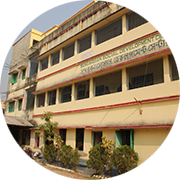
2004
First contact with SSDC - Sundarban Social Development Centre
At the request of Arnout Raskin, the founder of Mobile School, Bart pays a visit to SSDC in the Sundarbans, south of Kolkata, in the Bay of Bengal. SSDC is an Indian non-governmental organization engaged in primary healthcare, education, and combating child trafficking. The initial contacts were inviting and captivating, with tremendous needs and requirements, and shared parallel and complementary perspectives. To be continued... PAZ - Partners Without Borders comes into existence!
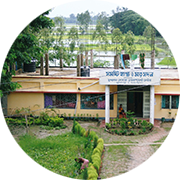
2005
Basic health care for mother and child
SSDC and PAZ prioritize "basic health care for mother and child." In addition to fieldwork in the villages, there is a maternity ward with a capacity of 30 beds. With over 800 deliveries per year, it provides medical and social support for thousands of mothers and children. Currently, the maternity ward is housed in a small unfinished building, limited to the ground floor. PAZ is funding the expansion: a two-story building with an increased capacity of 50 beds.
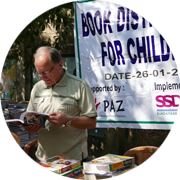
2007
Bookbank
Many children are unable to attend school due to a lack of financial resources to purchase books and school supplies. In order to increase opportunities and reduce dropouts, the Child Parliament takes the initiative to establish a bookbank and provide books to the most underprivileged. PAZ sponsors the bookbank, supporting this effort.
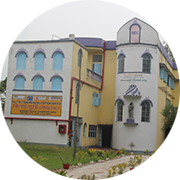
2008
From Maternity to "Specialized Unit for Malnutrition"
The competition from well-funded private initiatives makes it financially challenging to sustain the maternity ward. However, the need in the Sundarbans is significant, with malnutrition being one of the major problems, especially among children. Consequently, the maternity ward is transformed into a "specialized unit for malnutrition." Severely malnourished children up to the age of 5, along with their mothers, can participate in a residential program lasting 21 days.
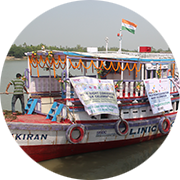
2011
Clinic boat
The Sundarbans is a poor and inaccessible region with limited transportation options, and healthcare services are scarce. For many, bringing the patient to the doctor is an insurmountable and unaffordable problem. So why not bring the doctor to the patient? A second-hand boat, repaired and modified, embarked on its maiden trip to one of the islands on July 11, 2012. On that day, more than 200 consultations were conducted. Mobile healthcare: a matter of life and death.
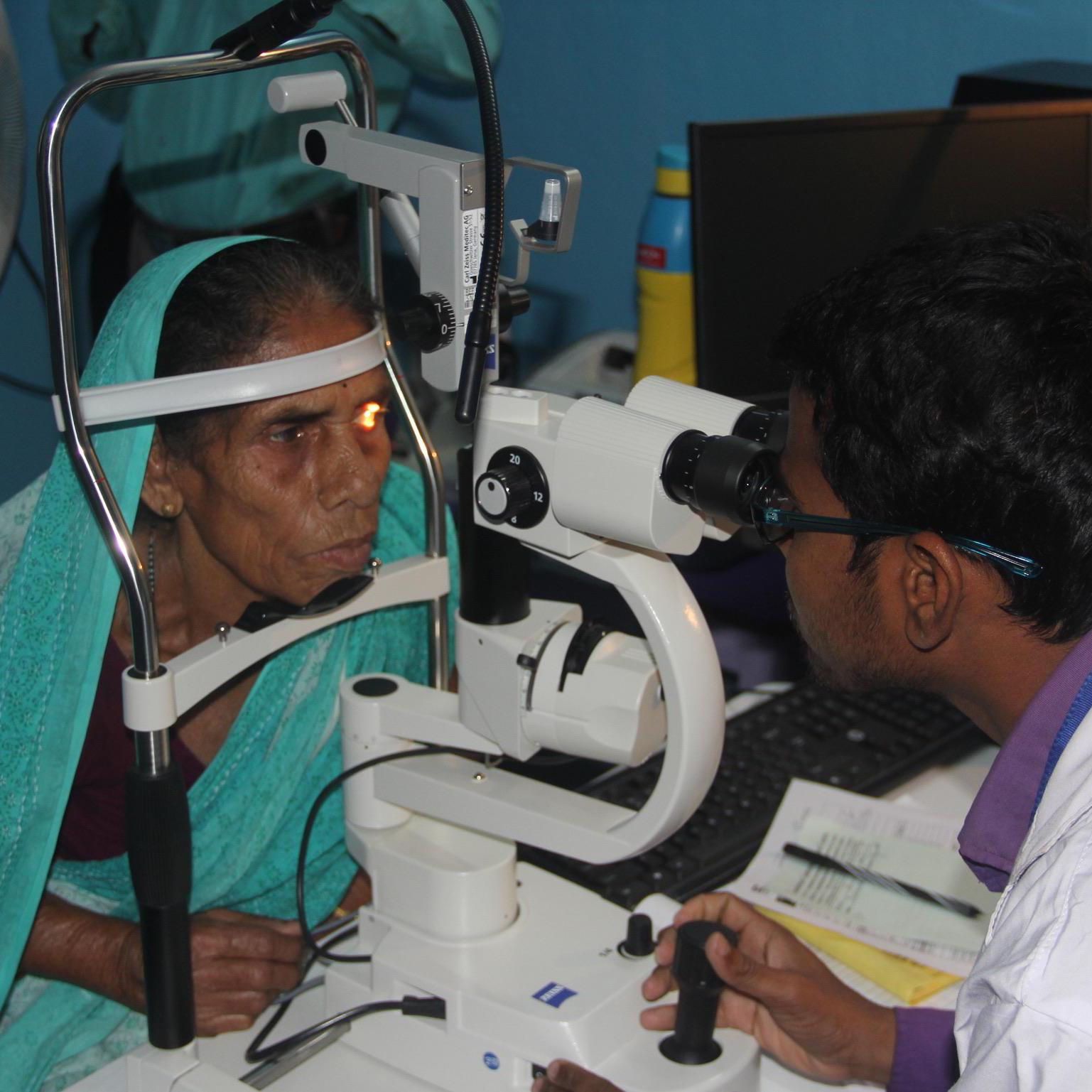
2011
Sundarban Comprehensive Eye Care
Approximately 1.2% of the population is blind or at a high risk of blindness. The small eye clinic is no longer meeting the demands. PAZ initiates the expansion and renovation of the existing building, allowing the capacity to increase from 6,000 to 10,000 surgeries per year.
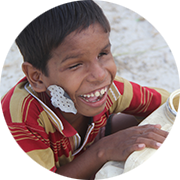
2013
Amar Jyoti
Father Amal, a priest of the Varanasi Diocese, is particularly concerned about the extreme poverty in his home state of Uttar Pradesh. He has been involved in managing various schools and in 2013, he started a residential school for blind children called "Amar Jyoti - My Light." The school aims to guide children towards greater independence. Contributions towards the operational costs of the school are greatly appreciated.
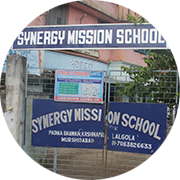
2014
Synergy Mission School
In Murshidabad, poverty is rampant, and education and training are inadequate, with most people unable to afford school fees. Therefore, in 2011, D.P. Poddar, the executive director of WBVHA, took the initiative to start a primary school in Lalgola. By 2017, it had become a primary school with 145 children and a staff of 15 teachers and caregivers, offering kindergarten and four years of primary education. Here too, PAZ provides vital support in covering operational costs.
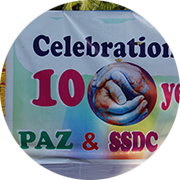
2014
PAZ & SSDC, 10 years of solidarity
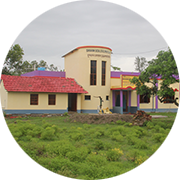
2017
Namkhana
Through a donation, SSDC acquires property—a piece of agricultural land and a building in need of renovation—on one of the many islands. There are various possibilities, including health and care centers, education, training, agriculture, fish farming, and cattle rearing. We begin with health and care services.
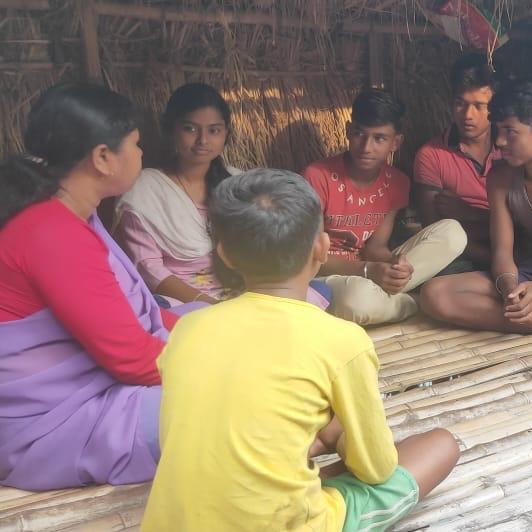
2017
Girl Child Protection
Early marriage, child trafficking, child labor, and domestic work are persistent forms of child abuse. SSDC is continuously present on the ground, raising awareness, providing information, and offering guidance. Actions are taken, and the government is engaged. As existing funding was terminated, PAZ assumes the personnel costs.
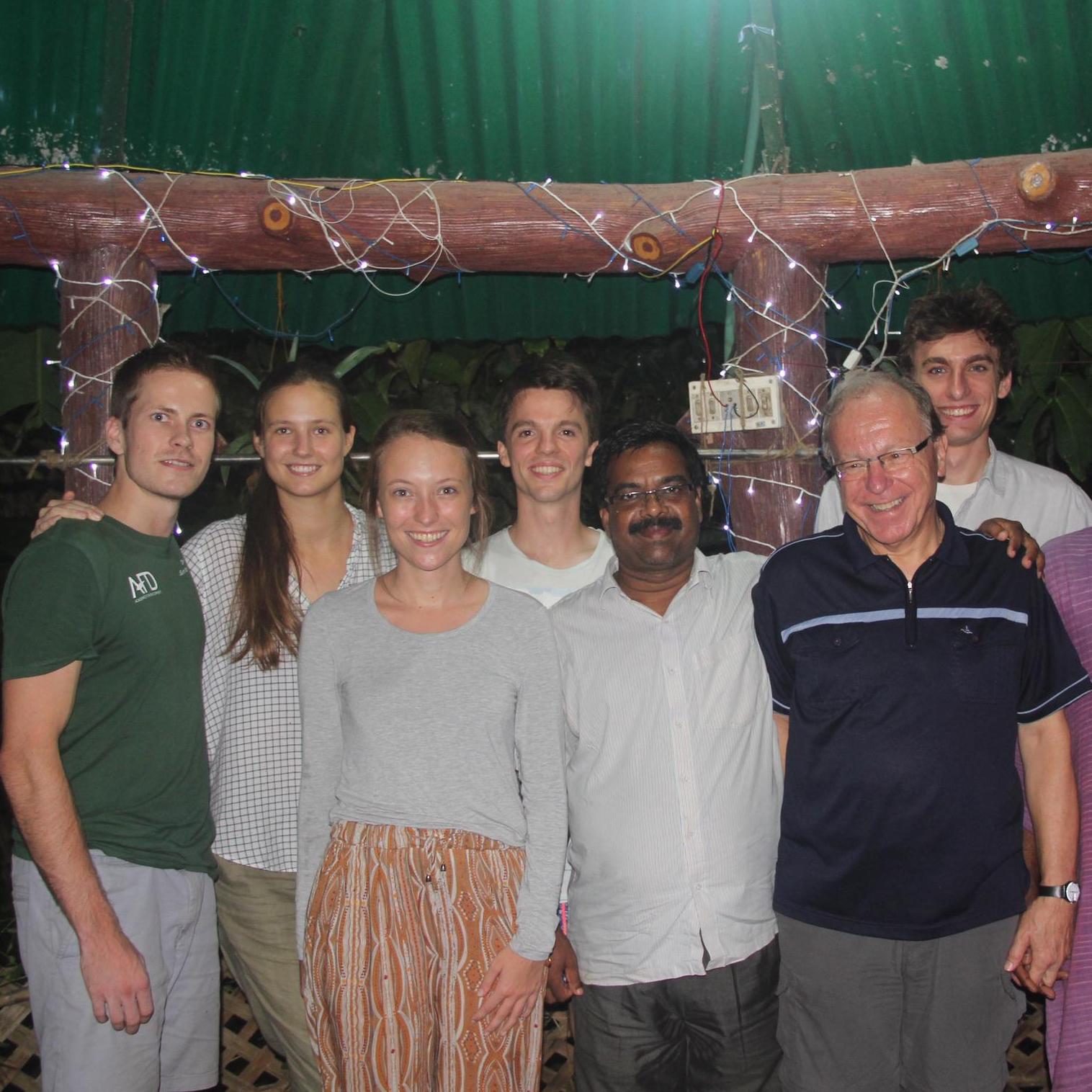
2017
AFD - Academics For Development
Discovering the world, breaking boundaries, pushing limits, and working together for solidarity... For the first time, PAZ collaborates with students from AFD - Academics For Development at KU Leuven. We spend a year preparing a specific project proposed by SSDC. In July, after the academic year, we depart for 6 weeks to the Sundarbans to implement the project. It is an engaging and enriching period.
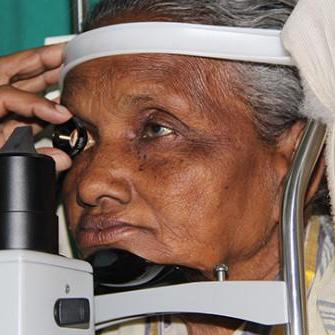
2019
Eye Hospital
The operation of the eye hospital expands, with more patients and surgeries. Renewal, specialization, and optimization are necessary. PAZ is a significant co-financier of the new operating theater, providing new furniture and equipment. With the participation of 5 doctors, 48 nurses, and 29 optometrists, over 8,000 surgeries are performed annually.
A team of AFD students works on automating patient registration.
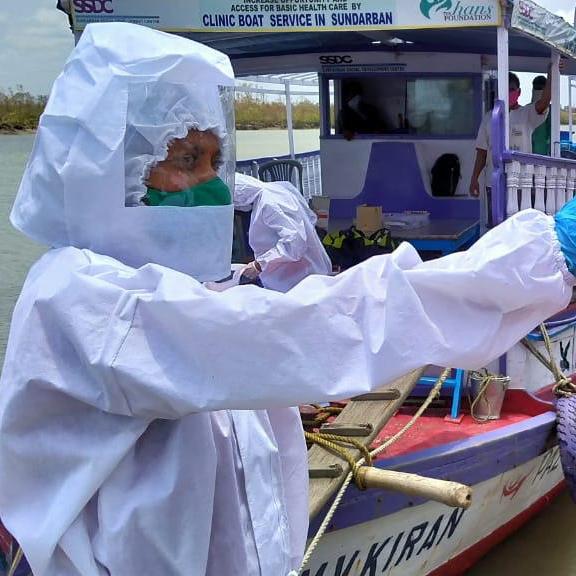
2020-2021
Forced "home confinement" ...
Forced "home confinement" due to COVID-19 disrupts and paralyses the world. Visiting our partners is not permitted. However, we remain in solidarity through emergency aid and financing initiatives such as Girl Child Protection, the Book Bank, and the clinic boat.
In 2021, we begin OPD - Dermatology, an Open Patient Department for individuals with skin diseases. Every Saturday, 50 to 70 people receive consultations. PAZ finances the operational costs with an amount of €10,000.
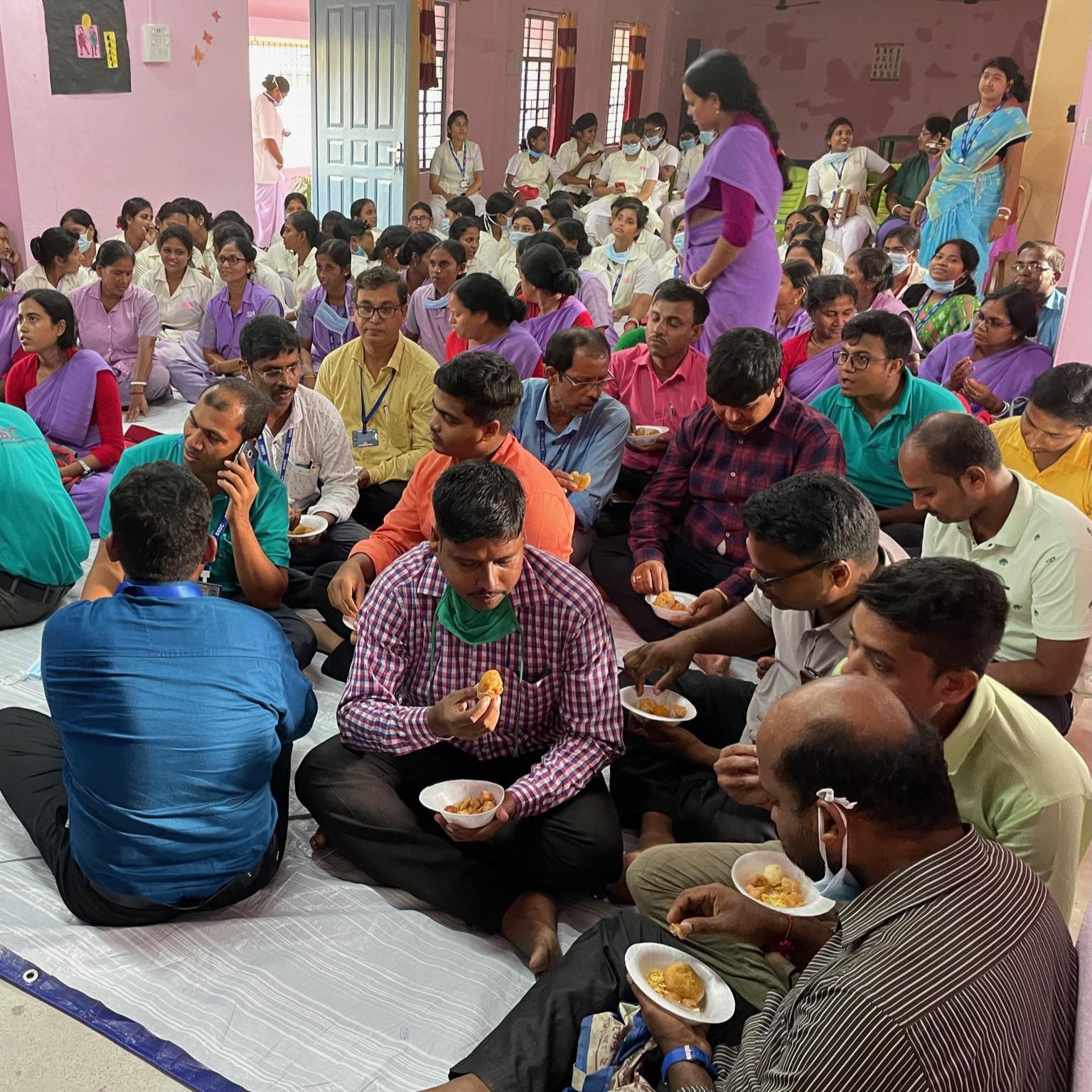
2022
The borders reopen
The borders reopen, and we can visit our partners again. It feels as if there were no problems or limitations. The SSDC campus expands, activities increase, and the organization is optimized.
"Helping is ensuring self-reliance and sustainability by making oneself unnecessary."
However, not all projects can be self-sustaining, such as the clinic boat. The patients cannot bear the cost of consultations. Therefore, we must seek Income Generating Projects (IGPs). SSDC's proposal is the realization of one major project: a community hall.
The hall would be made available to the local and regional population, organizations, institutions, schools, and businesses for hosting weddings, family celebrations, meetings, seminars, performances, and festivals for youth, adults, seniors, and organizations. Existing amenities and advantages eliminate the need to start from scratch: the land is owned by SSDC and is located by the roadside. Utilities such as electricity and water are already present due to the existence of the hospital and administrative buildings.
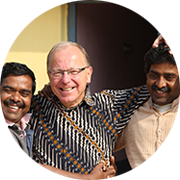
2023
"We will continue"...
Optimize ... further build continuity, self-sufficiency, and sustainability ...
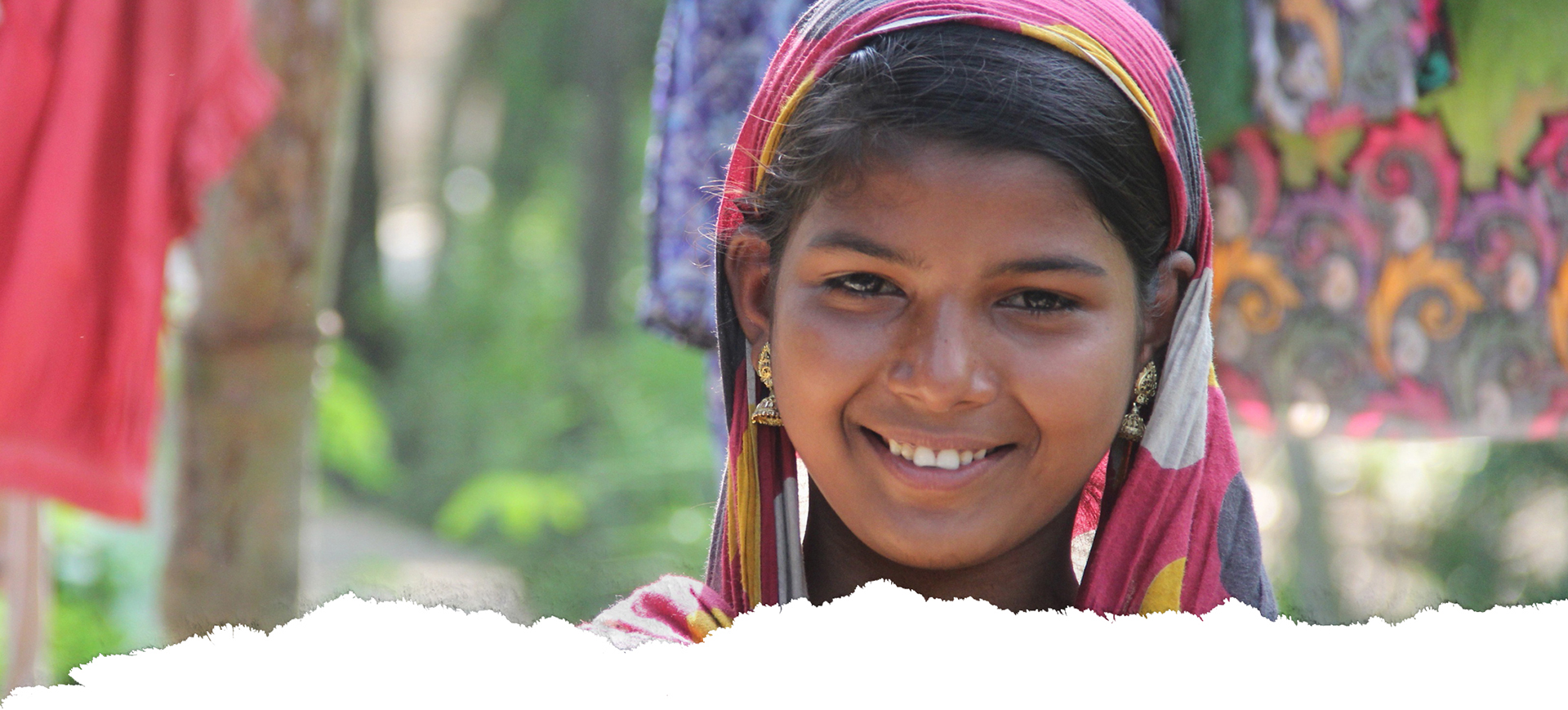
![[:swvar:ufile:1:description:]](/swfiles/files/pazvzw_logo.png?nc=1709140229)